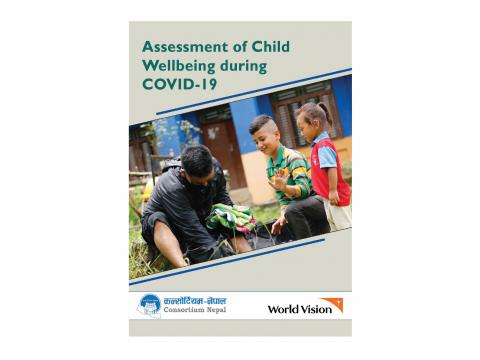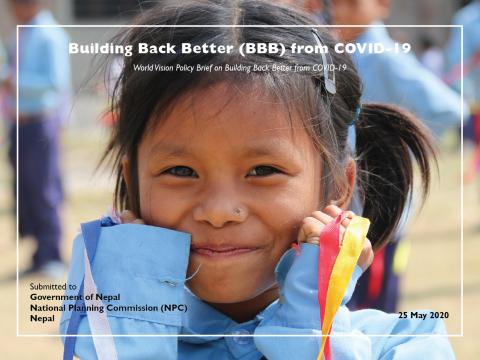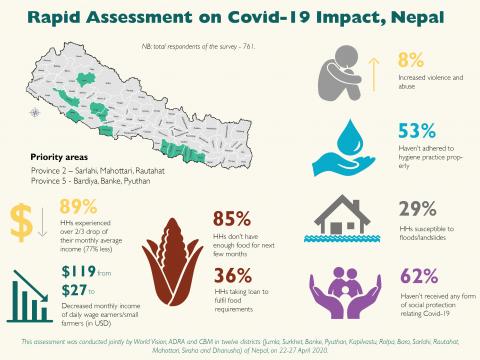Assessment of Child Wellbeing during COVID-19
Download
A novel Coronavirus or COVID-19, which evolved in Wuhan, China in early December 2019, has soon turned into pandemic infecting over 15 million people and causing over 600 thousand deaths across the world, as of July 21 (WHO 2020). The pandemic is causing a heightened level of concern and massive public reaction as it continues hampering multiple aspects of peoples lives, by more or less confining people in their houses with their economic activities either slowed or brought to complete halt. Implementation of strict social distancing and other preventive measures, for a long time, is frustrating people with boredom, inadequate information, and productivity loss.
As of July 21, 2020, Nepal has 17,994 positive cases with 40 deaths reported. Among them, 12477 people (69.3%) have already recovered from the infection while confirmed cases in isolation are 5477 (MoHP, GoN). Similarly, the number of children (i.e. people aged 0-20 years) is 4305 which is almost 24% of the total positive cases. While children so far have not faced the direct health effects of COVID-19- the crisis is having a profound effect on their wellbeing. During the lockdown, children are more vulnerable to abuse and exploitation while their schooling is seriously disturbed. Therefore, with the objective to collect, analyze and disseminate authentic information on the situation of children in Nepal during the pandemic, Consortium Nepal conducted research titled ‘Assessment of Child Wellbeing during COVID-19’.
This assessment is accompanied by collecting responses of children, parents and local government representatives/officials from selected districts across Nepal. For the purpose, separate questionnaires were developed for all these stakeholders. Being a descriptive study, questions were developed so as to collect qualitative data as per the need and availability. The final questionnaires were then replicated into Google Forms to facilitate the online survey. Efforts were also made to disseminate the hard copies of the questionnaires to those respondents having difficult to access the online Google form. The information of such hard copies was then entered in the Google form by the research team. Furthermore, online meetings were conducted with child rights experts and members of the Child Advisory Board of Consortium-Nepal to include different aspects of the children in the assessment. National inclusion parameters are fully respected while selecting the respondents for the assessment. One of the limitations of the study is that the survey was completed within a short period solely using online platforms.



